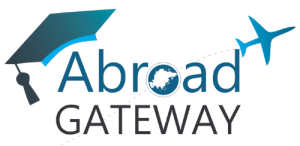Canada continues to be one of the most desirable destinations for international students. Discover Canada Study intakes for international students in 2026. Learn about Fall, Winter, and Spring options and deadlines. Many students complete their studies in their home country before advancing their education to Canada’s top universities. In this blog, we’ll dive into the details of the 2026 Canada intakes, highlighting key universities, available programs, fees, and application deadlines.
Whether you’re aiming for undergraduate or postgraduate studies, understanding these details will help you effectively plan your academic journey and make the most of the opportunities Canada has to offer.
Popular Study Intakes in Canada for International Students
1. September or Fall Intake:
The primary intake has the highest number of courses and programme options.
- Application Deadline: December to March
- Programs Available: Undergraduate and Postgraduate
Top Universities and Popular Programs for September Intake in Canada 2026
| Universities in Canada | Annual Tuition Fee |
| The University of Toronto | $58,160 |
| University of British Columbia | $55,541 |
| McGill University | $56,544 |
| University of Calgary | $40,103 |
| Niagara College | $17,215 |
| University of Alberta | $30,090 |
| University of Waterloo | $47,560 |
| University of Ottawa | $26,354 |
| Ryerson University | $38,457 |
Why Choose September Intake in Canada?
- September intake is the primary intake in Canada for most undergraduate and graduate programs; therefore, it offers a wide variety of programs and courses.
- Most extracurricular activities are conducted in the September intake.
- Universities often host huge welcome events, orientations and social gatherings at the start of the fall semester.
- Many internships, part-time jobs, and on-campus job opportunities are available starting in the fall intake.
- With the September intake, you have a summer break (June–August) before starting your academic year, which gives you time to plan your move to Canada.
2. January or Winter Intake:
A secondary intake with fewer courses than the fall intake.
- Application Deadline: September to November (previous year)
- Programs Available: Undergraduate and Postgraduate
Top Universities and Popular Programs for Winter Intake in Canada 2026
| Universities in Canada | Annual Tuition Fee |
| The University of Toronto | $54,160 |
| Carleton University | $42,873 |
| Queen’s University | $27,513 |
| Lambton College | $25,340 |
| McGill University | $55,389 |
| Douglas College | $18,727 |
| University of Ottawa | $26,354 |
| Mount Saint Vincent University | $40,980 |
| Centennial College | $28,742 |
Why choose Winter Intake in Canada?
- Winter Intake comes with less competition for spots, as there will be fewer applications for certain programs
- If you want to work on your application, such as you want to improve your English language proficiency test score, or you want to gain more work experience, Winter Intake is a better choice for you.
- If you are planning for the Winter Intake, you can complete your course in December or April, and then you can easily start your internships or job in the summer.
- Winter Intake will offer you possible availability of taking courses, as certain master’s programs like computer science, engineering, and business programs are mostly available only in winter.
3. May or Spring/Summer Intake:
Limited programme availability, mainly for short-term courses or diplomas.
- Application Deadline: January to February
- Programs Available: Diploma
Top Universities and Popular Programs for May Intake in Canada 2026
| Universities in Canada | Annual Tuition Fee |
| University of Waterloo | $47,560 |
| Ryerson University | $38,457 |
| Northern College | $15,451 |
| Centennial College | $28,742 |
| Vancouver Community College | $19,900 |
Why choose the Summer Intake in Canada?
- Summer intake tends to be less competitive due to the smaller number of applications.
- Planning to take summer courses helps you graduate earlier or better aligns with your career plans.
- Graduate programs are most likely to start in the summer.
- Commencement in the summer might also allow you to look for part-time jobs or internships.
- You will enter Canada in a warm climate, which makes it easier for you to settle in before the harsh winter begins.
Why Do Indian Students Prefer Studying in Canada?
Canada has become one of the most sought-after destinations for Indian students due to several compelling reasons:
- Top-ranked universities and colleges offer world-class education.
- Affordable tuition and living costs compared to other Western countries.
- Post-graduation work opportunities leading to potential permanent residency (PR).
- A multicultural environment with a welcoming atmosphere for international students.
- Scholarship opportunities are available for Indian students.
- A strong Indian community across cities offers cultural comfort and support.
How to Prepare for Canada Intakes: A Step-by-Step Guide
- Research Your Preferred Universities and Programs: Start by researching the universities in Canada that offer your desired course. Check their rankings, program details, and specific entry requirements.
- Understand the Intake Dates: There are three intakes (Fall, Winter, and Spring). Make sure you’re aware of the application deadlines and plan accordingly.
- Prepare for English Proficiency Tests: Most Canadian universities require IELTS, TOEFL, or other English proficiency tests. Start preparing well in advance to achieve the required scores.
- Gather Required Documents: Ensure your passport is valid, and prepare other essential documents, such as academic transcripts, reference letters, statement of purpose (SOP), and proof of funds.
- Submit Applications Early: Apply well before the deadlines. Many universities have a rolling admissions process, so applying early increases your chances of acceptance.
- Apply for Scholarships: Research scholarship opportunities for Indian students and apply early. Many Canadian institutions offer merit-based or need-based scholarships.
- Prepare Financially: Be sure you have sufficient funds to cover tuition and living expenses. Explore funding options like education loans, part-time work opportunities, and scholarships.
- Health and Travel Preparations: Arrange for health insurance and familiarise yourself with travel arrangements and Canada’s visa requirements.
- Get a Study Permit (Visa): After receiving an acceptance letter, apply for your study permit well in advance.
- Plan Your Accommodation and Travel: Once your study permit is approved, plan your accommodation and book your travel to Canada.
Ready to Take the Next Step towards Studying in Canada?
At Abroad Gateway, we offer expert IELTS/TOEFL coaching and comprehensive Canada Study Visa consultations. Our experienced team will guide you through every stage – from choosing the right university to securing your study visa.
Let us make your Canadian dream a reality! Contact us today for personalised guidance and support.






